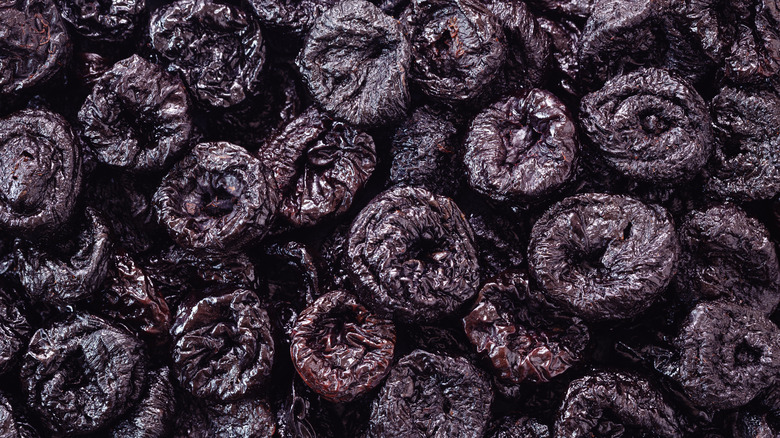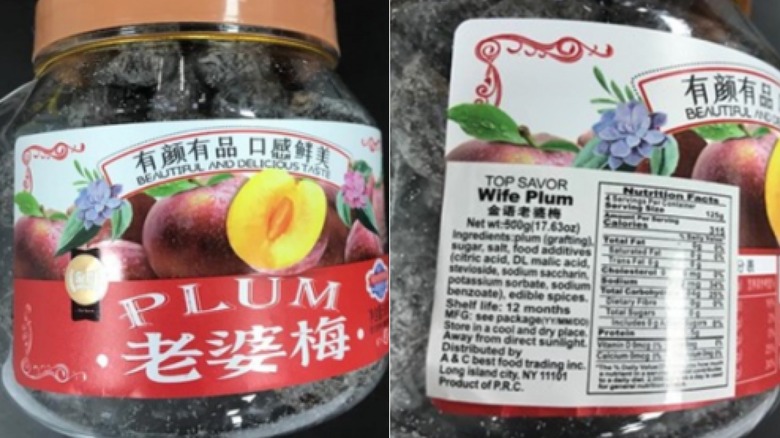Recalled 'Wife Plum' Product Contains Unpermitted Dye And Unlisted Sulfites
Certain "what if" scenarios might cause a shopper to think twice before consuming a particular food. Among them is probably: "What if that food gets recalled?" Pre-cut fruits have been recalled over the pathogen, listeria. Hash browns have been taken off store shelves because they contained an undeclared allergen, and salmonella has run mysteriously rampant in various foods.
A more recent recall involves an item that might be less familiar to some people: "wife plums." A Language Log post by UPenn sinologist Victor Mair explains that wife plums are a snack found in China. LiveJournal user gentlemanfarmer described the treat as "actually pretty tasty. Dried and salty and sweet and a little plummy, still with the pit." It consists of fruit that has been preserved with a combination of sugar, licorice, and salt or by soaking it "in a sugar solution." An ingredients label for wife plums might also feature a slew of additives, as shown on the Weee! website. However, as the FDA reported, jars of "Wife Plum" from A&C Best Food Trading Inc. contained a dye that's not legal to use in the U.S. as well as undeclared preservatives.
The recalled 'Wife Plums' contain a dye that was banned in the 1970s
The FDA reposted an announcement from the New York State Agriculture Commissioner regarding A&C Best Food Trading Inc.'s "Wife Plum." The statement warned that the product contained "undeclared sulfites and unallowed dye E123." The "contaminated" fruit snacks can be identified by the code "2021/10/15" and were sold in a roughly 1-pound plastic jar. They were distributed throughout the U.S. The commissioner's office cautioned that those "who have severe sensitivity to sulfites" should avoid eating the product as it may cause "life-threatening reactions." But there were no publicized reports of anyone getting sick from the product.
The Cleveland Clinic explains that sulfites have a long history of being used to preserve wines or prevent foods from browning. They have been used in medications, too. Those with a sensitivity to sulfites can have reactions spanning from asthma symptoms to more severe anaphylactic shock. While unsafe for some, sulfites are permitted to be used in food in the U.S. However, some dyes are not, such as E123. As detailed in an FDA report, E123 is Europe's code for Red Dye No. 2, which is illegal in the U.S. According to Live Science, the dye was found to cause cancer in rats that were exposed to large doses, leading to a ban in the 1970s.

